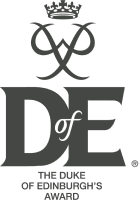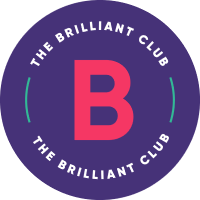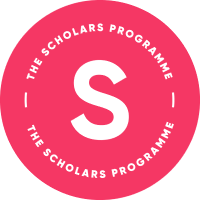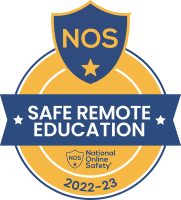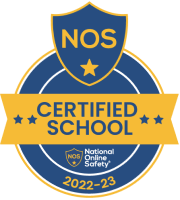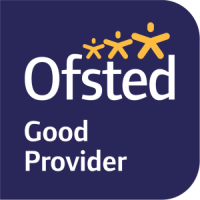This subject is part of the Faculty of Science and Physical Education
Our Head of Faculty is
Mr R Down – rdown@tcat.school
Our subject teacher and email address is
Mrs R Kent rkent@tcat.school
Our subject intent:
The NCFE CACHE Level 1/2 Technical Award in Child Development and Care in the Early Years is a qualification that introduces learners to child development and care. It includes a vocational and projectbased element and is designed for learners who are interested in the in the early years sector. It is aimed at 14- to 16-year-olds studying key stage 4 (KS4) curriculum.
This qualification aims to:
- Focus on the study of child development and care in the early years.
- Offer breadth and depth of study, incorporating a key core of knowledge.
- Provide opportunities to acquire several practical and technical skills.
Pupils will do this by:
- Provide an understanding of holistic child development.
- Identify factors that influence child development.
- Understand legislation in the early years.
- Promote care routines and activities to support the child.
- Provide an understanding of the expectations of an early years practitioner and their roles and responsibilities in a childcare setting.
- Provide an understanding of the importance of observations in early years childcare.
- Understand the purpose of planning in early years childcare
The course consists of 9 content areas:
| Content area number | Content area title |
| Content area 1 | Child development |
| Content area 2 | Factors that influence the child’s development |
| Content area 3 | Care routines, play and activities to support the child |
| Content area 4 | Early years provision |
| Content area 5 | Legislation, policies and procedures in the early years |
| Content area 6 | Expectations of the early years practitioner |
| Content area 7 | Roles and responsibilities within early years settings |
| Content area 8 | The importance of observations in early years childcare |
| Content area 9 | Planning in early years childcare |
Assessment - The NCFE CACHE Level 1/2 Technical Award in Child Development and Care in the Early Years is assessed through two external assessments set by NCFE: a Non-Exam Assessment (NEA) and a Written Exam (EA), each accounting for 50% of the final grade. The NEA involves portfolio-based tasks completed over a set period, while the EA is a written exam containing different question types, such as multiplechoice, short-answer, and extended-response questions.
Curriculum Subject Offer
Year 10 Child Care
Subject intent
The first year of the Child Development and Care Course is an introduced to childcare and development of children aged 0-5 years.
During Year 10 you will complete unit 1. This is an introductory unit designed to give an overview of the types of settings and local provision for children. You will learn how to prepare for working in settings and the responsibilities of early years workers. You will also gain an insight into your preferred learning style and develop your ability to study.
You will begin to study unit 2. This unit focuses on the holistic development of children.
Topic Breakdown
|
|
Half term 1 |
Half term 2 |
|
Autumn |
CA6 Expectations of the early years practitioner |
CA1 Child development |
|
Spring |
CA2 Factors that influence the child’s development |
CA3 Care routines, play and activities to support the child |
| Summer | CA4 Early years provision | CA7 Roles and responsibilities within early years settings |
You will be assessed
- At the end of each content area either a mock non-exam assessment or short exam and scenario-based exam questions
- End of year mock written exam.
Child Care full Scheme of Work - Year 10
Year 11 Child Care
Subject intent
The Level 2 Technical Award in Child Development and Care provides learners with the opportunity to gain a vocational qualification that will introduce learners to the childcare sector. It includes the knowledge and understanding of child development and well-being necessary for working with children in a variety of settings. It is aimed at a range of learners who wish to be introduced to childcare and development of children aged 0-5 years. It also gives learners an insight into their preferred learning styles and assists in developing their ability to study.
In Year 10 you learnt:
- the types of settings and local provision for children
- to prepare for working in settings and the responsibilities of early years workers.
- an insight into your preferred learning style and
- develop your ability to study.
- An introduction into the holistic development of children.
During Year 11 you will work on:
Unit 2. This unit focuses on holistic development and factors that affect development. You will be introduced to ways of observing children so that you can support development through appropriate activities and care routines. You will also learn how to work with children when they move from one setting to another.
Unit 3 supports you in your preparation for the scenario based short answer examination.
Topic Breakdown In the table just putting headings of what is covered
| Y11 Intent | Half term 1 | Half term 2 |
| Autumn |
CA8 Importance of observations in early years childcare. CA5 Legislation, policies and procedures in the early years |
CA9 Planning in early years childcare Mock NEA |
| Spring | Non-Exam Assessment | |
| Summer | Revisit and revise content areas. | |
Assessment:
- In lesson, mock controlled assessments and short exam and scenario-based exam questions.
- NEA external controlled assessment, 14 hours (50% final grade)
- Written external exam, 1.5hrs (50% final grade)
Child Care full Scheme of Work - Year 11
Within each subject we have our own specific personalised marking and feeback policy.
|
Arts and Creative Technology |
||
|
|
KS3 |
KS4 |
|
Verbal dialogue |
Teachers circulate with purpose, checking pupils’ work and collecting information on whole-class strengths, skill development, errors, misconceptions, knowledge gaps etc. The teacher adjusts their lesson accordingly. |
Teachers circulate with purpose, checking pupils’ work, providing feedback if appropriate and collecting information on whole-class strengths, errors, misconceptions, knowledge gaps etc. The teacher adjusts their lesson (or SOW) accordingly. |
|
Self/peer assessment |
Verbal or written feedback through strengths/targets and annotations. If written, peer and self-assessment should be completed in blue pen. |
Verbal or written feedback through strengths/targets and annotations. If written, peer and self-assessment should be completed in blue pen. |
|
Whole Class Feedback |
When pupils complete extended pieces of work, teachers will look through a sample of work from each class they teach and note pupils’ strengths and targets. Teachers will then use this information to provide whole class feedback on what pupils are doing well and how pupils can improve their work further. As this type of marking involves the teacher looking at a sample of work, the teacher will use a rotation system to ensure that the work of all pupils is looked at on a regular basis. Where books are not used, verbal responses from pupils or video evidence can be used. |
When pupils complete extended pieces of writing, teachers will read through a sample of books from each class they teach and note pupils’ strengths and targets. Teachers will then use this information to provide whole class feedback on what pupils are doing well and how pupils can improve their work further. As this type of marking involves the teacher looking at a sample of books, the teacher will use a rotation system to ensure that the books of all pupils are looked at on a regular basis. Where books are not used, verbal responses from pupils or video evidence can be used. |
|
Written comments |
Teachers within the department will either: 1. Check through the work of all pupils and use a marking code to indicate the strengths and targets of the work. The marking code will be shared with all pupils and pupils will be given precise instruction about how to improve their work. OR 2. Read through the work of all pupils and write a strength comment and target comment at the end of the piece of work. OR 3. Record evidence of work through suitable media, providing pupils with a strength and target comment relevant to the piece of work. SPAG Teachers will identify where pupils make errors in their spelling, punctuation and grammar and pupils will be given time in lessons to make corrections (by circling errors where SPAG mistakes appear). If several pupils in a class are making the same spelling, punctuation or grammar error then the teacher will address this with the class. |
Teachers within the department will either: 1. Read through the work of all pupils and use a marking code to indicate the strengths and targets of the work. The marking code will be shared with all pupils and pupils will be given precise instruction about how to improve their work. OR 2. Read through the work of all pupils and write a strength comment and target comment at the end of the piece of work. OR 3. Record evidence of work through suitable media, providing pupils with a strength and target comment relevant to the piece of work.
SPAG Teachers will identify where pupils make errors in their spelling, punctuation and grammar and pupils will be given time in lessons to make corrections (by circling errors where SPAG mistakes appear). If several pupils in a class are making the same spelling, punctuation or grammar error then the teacher will address this with the class.
Written feedback forms part of the module feedback process in vocational courses. This is intended to be summative for that unit/module but formative toward improvement in the following unit/module. |
|
Frequency of feedback |
Live feedback and responsive teaching will take place in most lessons where pupils have been asked to complete extended pieces of work. * Whole-class feedback will take place once a week. Peer/self-assessment When deemed to be the most effective method of assessing work produced in lessons Written comments will take place after between 10 and 15 lessons (around twice per term), as appropriate for the pace of the class. OR Once per module/rotation.
|
Live feedback and responsive teaching will take place in most lessons where pupils have been asked to complete extended pieces of writing. * Whole-class feedback will take place once a week. Peer/self-assessment When deemed to be the most effective method of assessing work produced in lessons Written comments will take place after between 10 and 15 lessons (around twice per term), as appropriate for the pace of the class. There may be several lessons where pupils do not write extensively. Instead lesson time will be used to: (for example) read and discuss the musical scores; annotate the text/diagrams; make notes about the set-works; complete short comprehension activities. |
|
Response to feedback |
When directed after marking/whole class feedback, pupils will be expected to make a response in blue pen OR Make media application of their feedback in their ongoing work. In some instances, pupils will be expected to put the title DIRT and either re-draft an entire piece of work or a section of the piece of work according to the teacher’s instructions. In other instances, pupils will be expected to apply their feedback in the form of transferable skills applied in a new task. This would be done in blue pen when relevant. In further instances, pupils may be asked to answer questions posed by the teacher. Responses to spelling mistakes include writing out misspelled words such as subject specific vocabulary or key words. |
When directed after marking/whole class feedback, pupils will be expected to make a response in blue pen OR Make media application of their feedback in their ongoing work. In some instances, pupils will be expected to put the title DIRT and either re-draft an entire piece of work or a section of the piece of work according to the teacher’s instructions. In other instances, pupils will be expected to apply their feedback in the form of transferable skills applied in a new task. This would be done in blue pen when relevant. In further instances, pupils may be asked to answer questions posed by the teacher. Responses to spelling mistakes include writing out misspelled words and listening to explicit teaching of spelling (etymology etc.). |
|
Summative assessment |
1 x formal assessment each half term or module rotation. A piece of extended work which is marked using comparative judgement on the No More Marking platform. Band boundaries are applied to the assessments once judged, as stated in the SOW. |
1 x formal assessment each half term. A piece of extended writing which is marked using comparative judgement on the No More Marking platform. Band boundaries are applied to the assessments once judged. This might be a practical piece or some written work, as stated in the SOW. |
